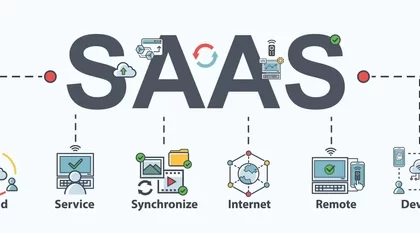The SACCOS are important institutions for providing financial services to marginalized communities and must be harnessed to help alleviate poverty in Tanzania and Africa in general. There is a need to build the internal capacity to meet the challenges that constrains their development. Unfavorable government policies, weak governance and management systems must be addressed. They should cooperate with the government and other development partners for better policy and legislature environment. Furthermore, in order to succeed to succeed in the new era of globalization (liberalized), the Savings and Credit Co-operative Societies (SACCOS) in different communities need to be people centered, be owned and controlled by members, should have a good leadership and management accountable to its stakeholders, and should be sensitive and responsive to the needs of its stakeholders and to changes in its internal and external environment.
Beside all, SACCOS must adhere to good governance and codes of ethics and it should have flexible and transparent operating policies and systems as well as an in-built mechanism of learning. Also they should be financially viable and sustainable. Amala Suite App affords SACCOS and Cooperative Institution with a systematic accurate and quality assured digital solution that enhance the growth and competitive institution in the financial sector. These benefits are such as; Special programs to building the internal capacity of the Board, staffs and committee members (supervisory and loan committees) SACCOS operating an office is like a small bank and needs to have competent staff, quality systems and controls, security of the funds, manage liquidity and so on (SCC, 2008). Although a small institution should not be held to the same requirements as a bank, there is a need to develop the capacity of management, board members and the rest of the members so that informed decisions are made and the members’ savings are protected. A clear division of roles between board and management is fundamental as well as an independent supervisory committee that can question the actions of the board. The application of technologies should find its place in the SACCOS (and other co-operatives) so as to promote effectiveness and efficiency in services provided and reduces operational costs. For instance, shift from manual working to computer applications in managing loans, savings and record keeping. The leaders and staffs need to know how to use these computerized systems.Ensuring proper financial management and Accounting system For the SACCOS to be effective in their operations meet expectations of members, they require periodic analysis of the SACCO’s financial position, its operating efficiency, and proposals for expansion. Basically the management of funds should involve: (i) considering funds available and source for additional capital; (ii) allocating funds among assets to be financed; and (iii) ensuring that all aspects of financing are dealt with in a manner consistent with sound business practices and cooperative principles. A complete and accurate accounting system is vital for effective management.It must produce several financial statements needed in planning and controlling, such as: (a) monthly and annual balance sheets and operating statements; (b) functional or enterprise accounts pertaining to departments or specific lines of business; and (c) special accounts such as patronage records, accounts receivable aging, member equity, and patron financing. An independent auditor periodically verifies the accuracy of the SACCOs’ business record. Networking of SACCOS There is a need to form stronger networks for SACCOS through horizontal and vertical Integration like forming unions and SACCOS joint-ventures.
This will allow SACCOS to have stronger organizations that can be effective in overcoming their institutional and external challenges and even build a stronger voice in the SACCOS movement. These networks will allow the SACCOS to provide an increasing array of services and products over time, and thus to compete with other types of financial institutions. Also networking helps in improving good governance, improve financial capacity, and reduce risk. For example, Dunduliza Limited: Dunduliza is a company limited by shares registered in 2004. Dunduliza receives funding from Financial Sector Deepening Trust (FSDT), and technical assistance from Desjardins International Development (DID). Currently, Dunduliza is a network of 50 SACCO’s branches with 65,000 members in various regions of Mara, Mwanza, Mbeya, Ruvuma, Iringa, Morogoro and Dar es Salaam. Services include training to the SACCO staff and leaders, material support (building, safe, stationary, furniture and Management Information System), salary for the SACCO-manager and intensive performance monitoring. The SACCOS should also form district and regional unions that will ensure building of their capacity, supervise their operations and share resources for the benefits of members. Modernization of Savings and Credit Cooperative Societies Tanzania’s network of Savings and Credit Cooperative Societies (SACCOs) are grass-roots financial institutions which have stood the test of time as effective microfinance institutions, offering members a convenient home for their savings and an access point for loans. For many people, membership of their SACCO is an invaluable safeguard against unexpected illness, accident or family death. Workers in the informal economy have increasingly looked to SACCOs in recent years to meet their needs. Nevertheless, the Reform and Modernization Program also recognizes that SACCOs in Tanzania are not meeting their full potential. There are in total about 1700 SACCOs operating in Tanzania, between them with about 260,000 members. This represents less than 1% of Tanzania’s population.
It is important to note that the number of SACCOs are now estimated at more than 5000.. A number of factors have been identified as holding back the development of SACCOs. These include low capitalization levels, a limited range of products and services and poor outreach. Some SACCOs suffer from weak internal control systems and high loan delinquency rates. The Reform and Modernization Program identifies a range of steps to be taken to strengthen the SACCO movement. Existing SACCOs are urged to reach out, to attract new members and to strengthen their capital and loan base. New SACCOs, where they can be financially viable, are to be encouraged, both in urban and rural areas. SACCOs are urged to consider whether they can provide members with innovative new products and services. New loan appraisal and loan monitoring methods are encouraged. SACCOs have access through SCCULT (the Savings and Credit Cooperative Union League of Tanzania) to a risk management program, which provides (among other benefits) cover against member default on loans in the event of death. SCCULT also encourages SACCOs to save collectively through its Central Finance Program. SCCULT is urging its member organizations to become more professional in their operations, where appropriate copying practices (such as smart front offices, or staff in uniforms) from commercial banks. Not all SACCOs currently choose to be members of SCCULT. Strengthening the SACCO movement will include steps to rebuild SCCULT, so that it fully meets its role as a democratically run and accountable cooperative apex organization able to adequately service its members.








